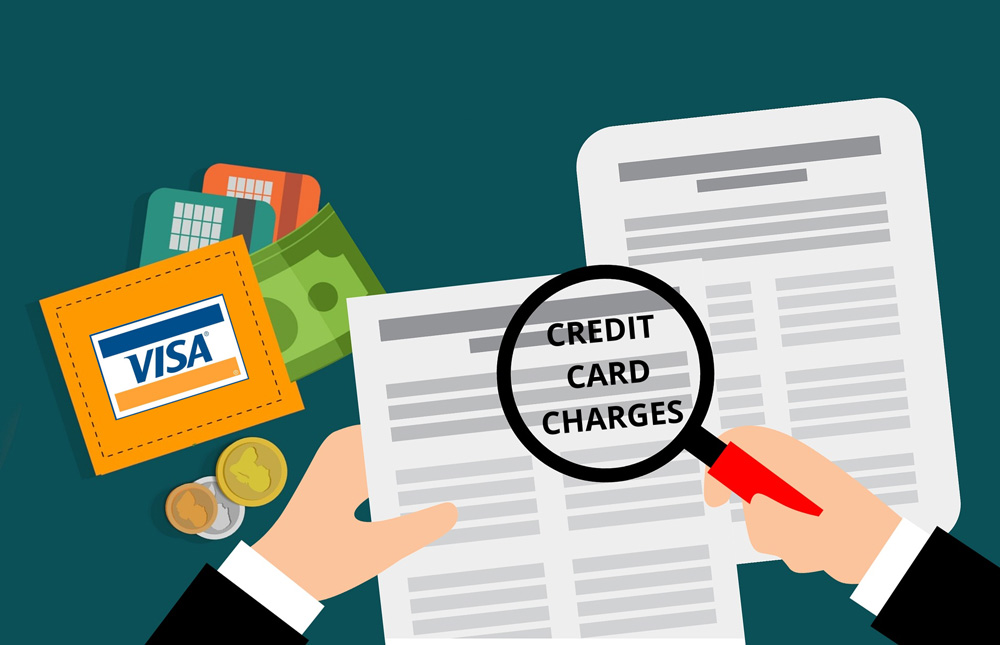Traveling internationally is an exhilarating experience, but managing finances while abroad can be a challenge. One of the most common dilemmas travelers face is deciding how to pay for goods and services. Enter the world of credit cards – a convenient and often rewarding method of payment. But how do you use them effectively and safely abroad? Let’s dive in.


Why Choose Credit Cards Over Cash?
- Safety First: One of the top perks of using credit cards? The security they provide. Imagine you’re wandering the cobbled streets of Rome and, oops, your wallet’s gone. With cash, it’s a total bummer – that money’s not coming back. But with a credit card? A quick call, and bam, it’s blocked. No unauthorized transactions, no headaches. Just peace of mind as you continue sipping that Italian espresso.
- Cha-Ching! Rewards Galore: Here’s a fun fact – every time you swipe that shiny card of yours, you could be racking up points, cashback, or rewards. Think of it as a little “thank you” from your bank. Over time, these perks add up, and before you know it, you’re enjoying a discounted flight or a free hotel stay. So, why pay with dull cash when your card’s throwing a rewards party?
- No Fuss, Just Convenience: Ever been in a foreign country, desperately trying to find an ATM or, worse, getting ripped off at a currency exchange counter? With a credit card, those days are history. They’re like the universal key to shopping – accepted almost everywhere and making your travel experience smooth as butter.
- Smart Currency Conversions: Here’s where credit cards truly shine. When you’re buying that souvenir in Paris or paying for a meal in Tokyo, your card’s got your back. It’ll handle the currency conversion, often giving you a rate that’s way better than any currency exchange counter. Plus, some cards even waive off foreign transaction fees. Talk about a win-win!
Types of Cards to Use Abroad
- Credit Cards: The traveler’s best friend for a reason. Not only are they universally accepted, but they also come packed with perks. From racking up miles and rewards with every swipe to robust protection against potential fraud, credit cards are a no-brainer for international transactions. And the cherry on top? Many premium cards have slashed those pesky foreign transaction fees, making your purchases seamless and straightforward.
- Debit Cards: Your direct gateway to your bank funds. Especially handy when you need to withdraw cash from ATMs abroad. However, tread with caution: while they’re great for instant access to your money, they might slap you with foreign transaction fees. Always check with your bank before jet-setting.
- Prepaid Cards: Think of them as the modern traveler’s checks. You preload them with a specific amount, which means you can budget your trip down to the last cent. They’re especially handy for those who like to keep a tight rein on their expenses. But, like everything, they come with a small catch – some might have fees, so read the fine print.
- Travel Cards: Enter the game-changers: Wise (previously known as TransferWise) and Revolut. These aren’t just cards; they’re a revolution in the world of travel finance. Offering real-time exchange rates, minimal to zero fees, and the flexibility of being used as both credit and debit cards, they’re rapidly becoming the top choice for savvy travelers. Whether you’re booking a hotel in Paris or grabbing a coffee in Tokyo, these cards have got your back, ensuring you get the most bang for your buck.


Understanding Foreign Transaction Fees
When you’re traveling abroad and swiping that card, you’re not just paying for your purchases. Sometimes, lurking in the shadows, are foreign transaction fees. But what exactly are they?
Foreign transaction fees are sneaky little charges that some credit cards tack on when you make a purchase in a currency other than the U.S. dollar. It’s essentially a surcharge, usually a percentage of your total transaction amount. So, if you’re dining in a Parisian café and the bill comes to €100, and your card has a 3% foreign transaction fee, you’ll find an additional $3 (or its equivalent in euros) added to your bill.
But why do banks charge this fee? It’s to cover the costs associated with currency conversion and the risks associated with international transactions. However, with the rise of global travel, many card providers have recognized the need to eliminate these fees to attract globetrotters.


Cards That Have Your Back Abroad
- Chase Sapphire Preferred Card: A favorite among travelers, this card not only offers impressive travel rewards but also comes with the perk of no foreign transaction fees. Whether you’re booking a flight or a hotel, this card ensures you’re getting the best deal without any hidden charges.
- Capital One Venture Rewards Credit Card: Say goodbye to annual fees and hello to seamless international transactions. Designed with the frequent traveler in mind, this card ensures that every purchase, whether at home or abroad, is hassle-free.
- Wise (formerly TransferWise) Debit Card: This isn’t just a card; it’s a revolution. By using the real exchange rate and charging minimal conversion fees, Wise ensures that you’re not losing money in currency exchanges. It’s transparent, straightforward, and a must-have for those who travel or conduct business internationally.
- Revolut: A digital banking alternative that’s taking the world by storm. With interbank exchange rates, Revolut ensures that your international transactions are not just fee-free but also get the best possible exchange rate. Add to that budgeting tools, cryptocurrency exchange, and more, and you’ve got a powerhouse in your pocket.


Safety Tips When Using Credit Cards Abroad
- Inform Your Bank About Your Travel Plans: Before you jet off to your next destination, it’s crucial to let your bank know about your travel dates and destinations. This simple step can prevent your bank from flagging your overseas transactions as suspicious and blocking your card. It’s a common security measure, but it can be a real inconvenience if you’re trying to make a purchase abroad and your card gets declined.
- Keep a Backup of Your Card Details: While we all hope for smooth travels, sometimes things don’t go as planned. In the unfortunate event that your card is lost or stolen, having a copy of your card details and the bank’s customer service number can be a lifesaver. Store this information in a secure place, separate from your card, so you can quickly report any issues and get a replacement if needed.
- Be Cautious with ATMs: Not all ATMs are created equal. When withdrawing cash abroad, choose ATMs that are in well-lit, busy areas, preferably those attached to banks. This reduces the risk of encountering ATMs fitted with skimming devices, which are used by fraudsters to steal card information. Additionally, always shield your PIN when entering it, even if no one seems to be around.
- Choose Local Currency for Transactions: When making a purchase or withdrawing cash, you might be given an option to be charged in your home currency. While this might seem convenient, it’s often a trap. This practice, known as Dynamic Currency Conversion (DCC), often comes with hidden fees and unfavorable exchange rates. Always opt to be charged in the local currency to ensure you’re getting the best rate.
- Monitor Your Account Regularly: With digital banking, it’s easier than ever to keep an eye on your account. Regularly check your statements for any unauthorized transactions. If something looks amiss, contact your bank immediately. It’s always better to be safe than sorry.
- Consider Using Mobile Payment Options: Platforms like Apple Pay or Google Wallet can offer an added layer of security. Even if your physical card gets compromised, these digital platforms use tokenization, ensuring your actual card details aren’t shared with merchants.
- Set Up Transaction Alerts: Many banks offer the option to receive real-time alerts for your card transactions. This can be an effective way to spot any unauthorized activity instantly.
Using credit cards abroad can be a seamless experience if done right. They offer convenience, security, and often, rewards that can enhance your travel experience. However, it’s essential to be aware of the fees and to use cards wisely. With the right card in your wallet, the world is truly your oyster. Safe travels, and remember to keep an eye out for more tips and guides from Premier Wanderlust!


I’m Djavan Dias, or DJ for short. I’ve swapped corporate life for endless adventures, sharing travel tips and insights on Premier Wanderlust. Dive into a world of smart travel and unforgettable experiences with me!



